Journalism masterclass tackles media ethics
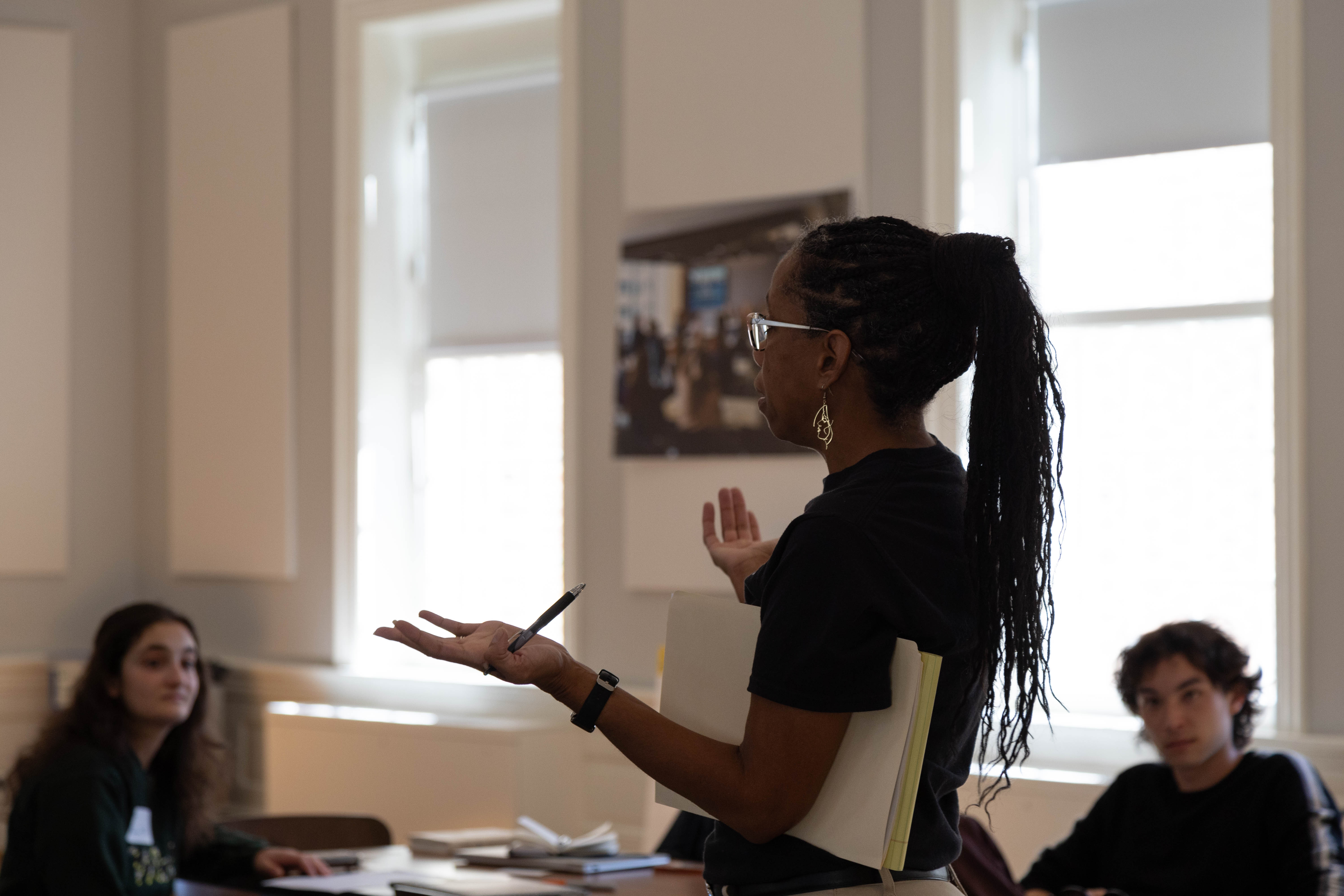 Students attending the second Charles Center journalism masterclass were faced with the gravest of hypotheticals: how does one cover a newsroom shooting ethically, responsibly, and respectfully, while working under a tight deadline, in competition with other news outlets?
Students attending the second Charles Center journalism masterclass were faced with the gravest of hypotheticals: how does one cover a newsroom shooting ethically, responsibly, and respectfully, while working under a tight deadline, in competition with other news outlets?
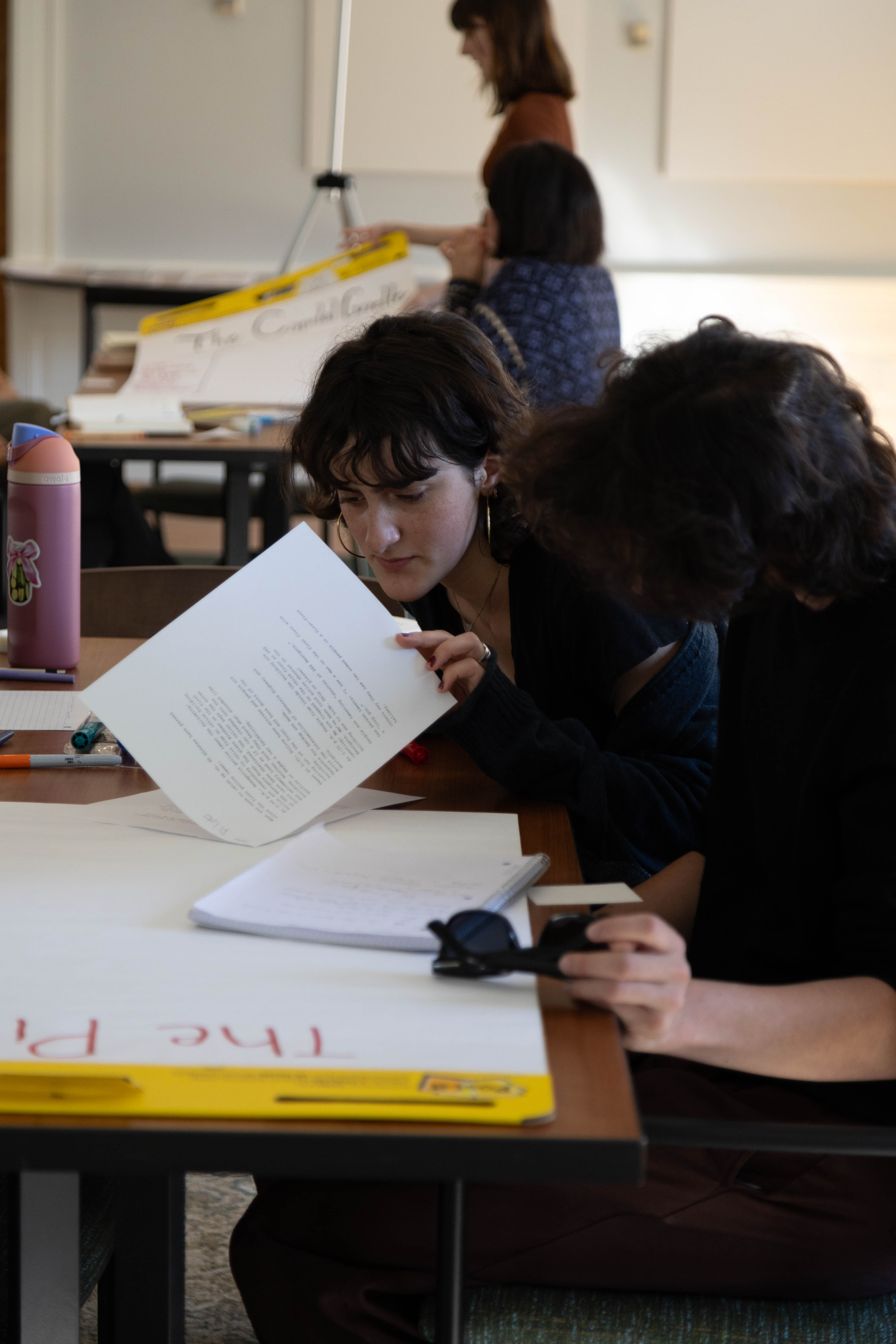 Denise Watson, features editor of The Virginian-Pilot and Daily Press, led the Oct. 25 masterclass, the second in a series of six workshops offered during the ‘24-’25 academic year.
Denise Watson, features editor of The Virginian-Pilot and Daily Press, led the Oct. 25 masterclass, the second in a series of six workshops offered during the ‘24-’25 academic year.
Curious to see how students would navigate tough issues, and the ways in which their personal experiences are brought to bear in the newsroom, Watson tasked three groups—each assigned to one regional news organization and equipped with different degrees of information—to imagine the process of reporting on a shooting that took place at the Capital Gazette newsroom in June 2018 in Annapolis, Maryland.
The exercise, and its focus on a real recent event, challenged students to properly attribute sources, ethically craft and post social media updates, and employ precise and accurate language while imagining the emotional and logistical issues that come with reporting on an emergency.
“Traumatic events, and you're going to cover those if you're a journalist, tend to be the times when your personal and your professional ethics come to the fore,” Watson said. “Sometimes they clash, and you're on deadline.”
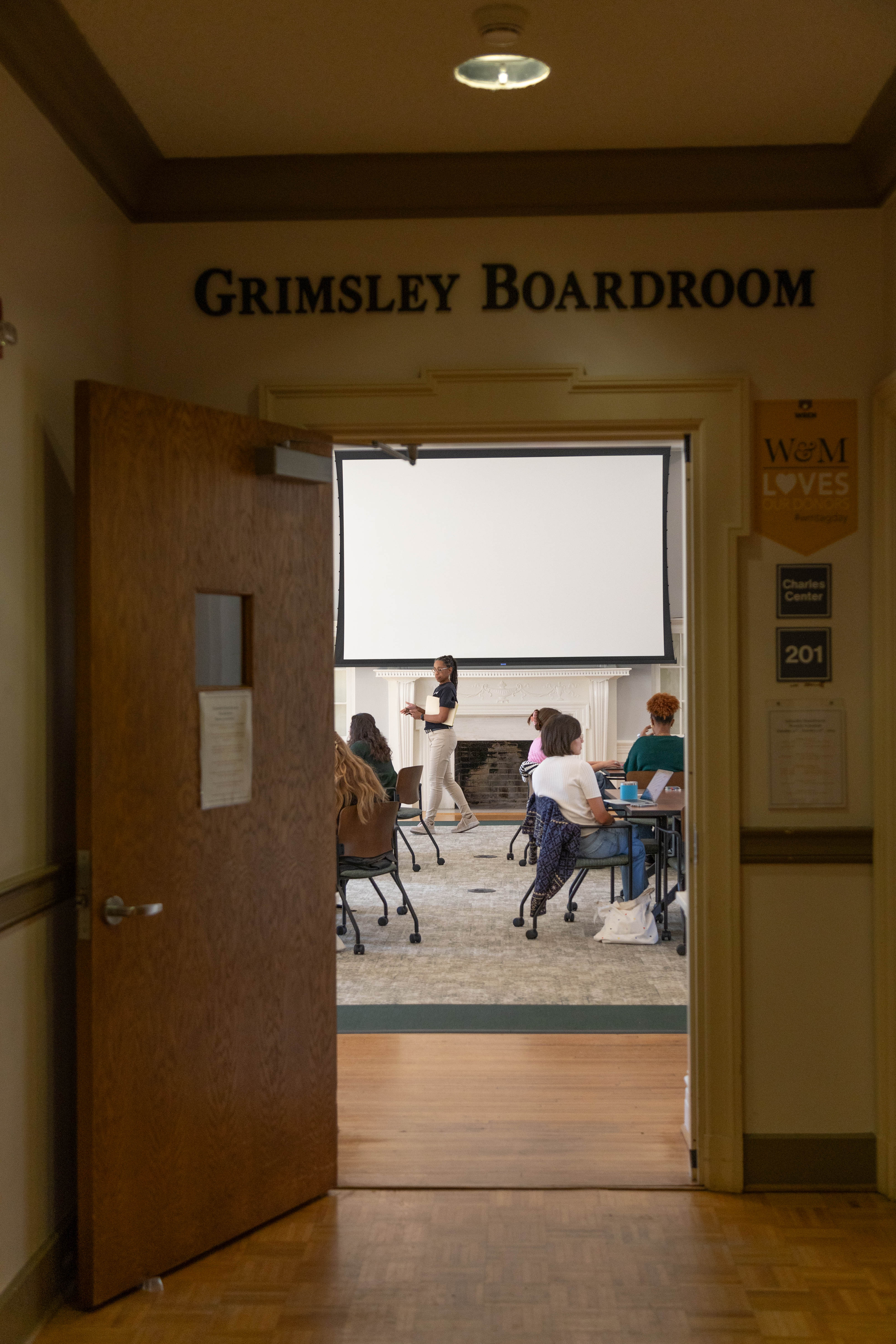 As the young reporters faced questions of whom to include, what to cover, and how to describe it, they grappled with their need to accurately report on the breaking news while remaining respectful of the emotionally fraught nature of the case.
As the young reporters faced questions of whom to include, what to cover, and how to describe it, they grappled with their need to accurately report on the breaking news while remaining respectful of the emotionally fraught nature of the case.
Initially drawn to register for the masterclass because of the importance of media in the current political landscape, Irene Straw ‘28, who plans to major in English and Japanese studies, said she walked away from the exercise with a new perspective.
“The differences between how you would report is based on how quickly you get your news, what information you already have, and the scale of your news agency,” Straw said. “It's a matter of when you get the information and what information you already have at hand.”
Ava Noce ‘26, a junior majoring in sociology with a concentration in social justice and policy, expressed appreciation for Watson’s lessons on source attribution, working with public officials, and how best to connect with sources. Noce said the opportunity to learn from practicing journalists about real-life issues is “refreshing.”
“Rather than just talking about how to get to journalism school,” Noce says, “It answers: how can you actually be successful when you’re there?”
Asking herself, “What are my morals? What would I do in this situation?” Noce reflected on the importance of trusting yourself, “especially when you’re reporting on tragedy, because you don’t want to exploit anyone, and you don’t want to misidentify someone or their situation.”
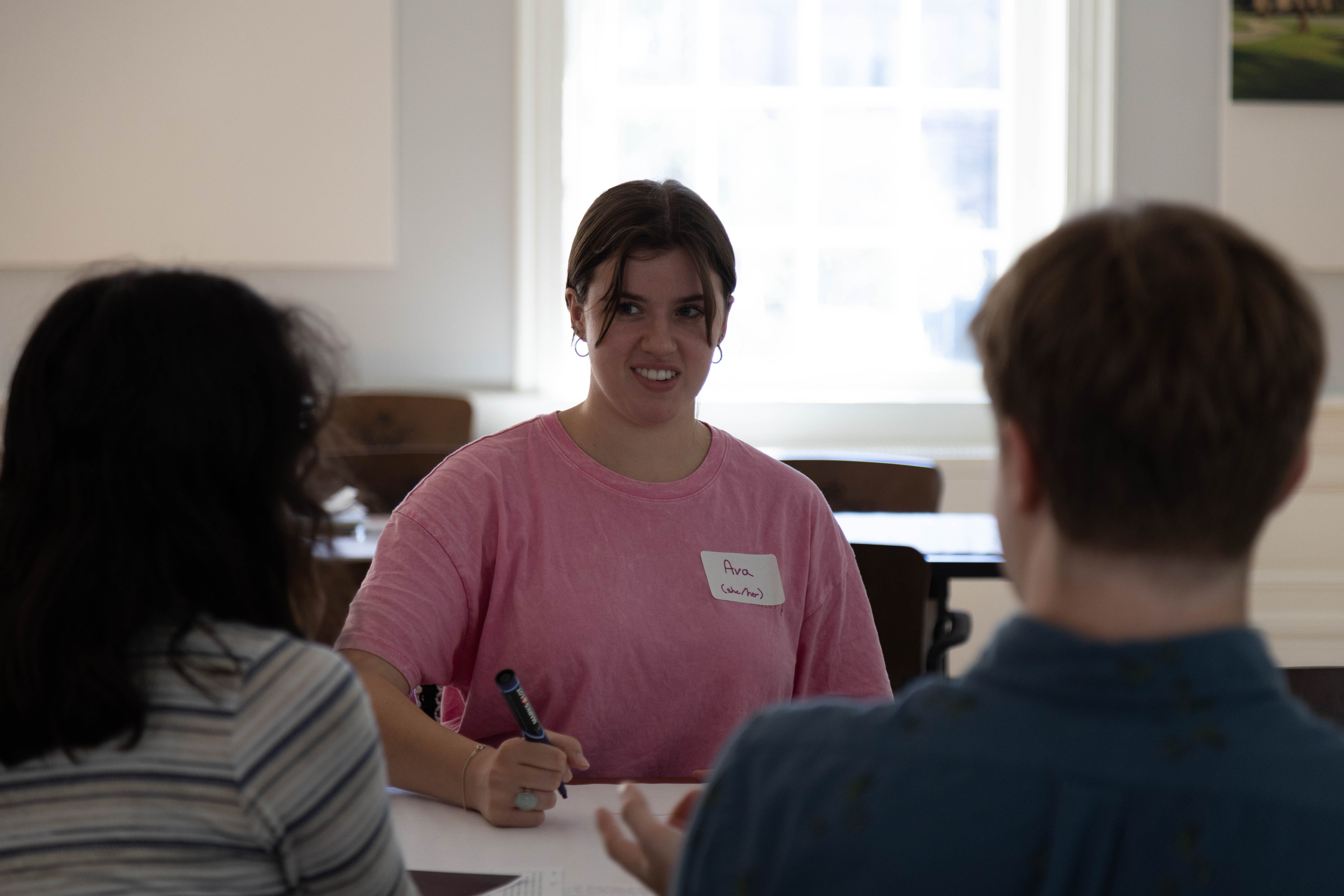 “We treat this time as our newsroom,” Watson told the students. “You all are journalists, so that means that I expect you to ask a lot of questions. Feel free to be curious. That's what journalism is about. You have to be curious about everyone and everything.”
“We treat this time as our newsroom,” Watson told the students. “You all are journalists, so that means that I expect you to ask a lot of questions. Feel free to be curious. That's what journalism is about. You have to be curious about everyone and everything.”
Beginning with a short quiz meant to interrogate students’ first instincts about media ethics and the moral quandaries that arise daily in the field, Watson described this workshop as a course on how to be “better media consumers and media critics.”
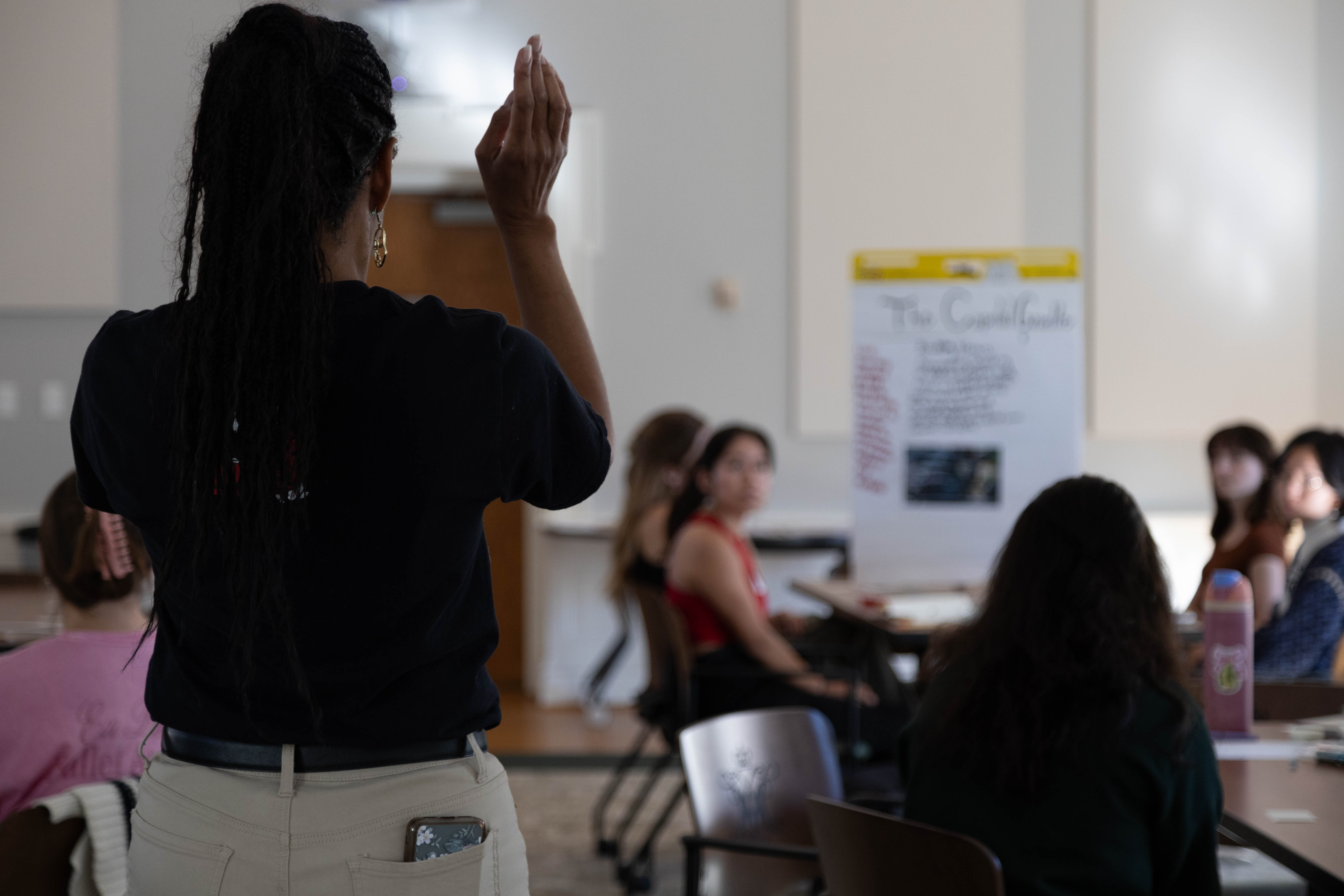 Addressing the guiding principles of journalism — accuracy, independence, fairness, transparency, and accountability — Watson emphasized the crucial role individual reporters can play in shaping the story, and history.
Addressing the guiding principles of journalism — accuracy, independence, fairness, transparency, and accountability — Watson emphasized the crucial role individual reporters can play in shaping the story, and history.
It comes down to “the choices we make,” said Watson. “Which stories we cover, who we interview, and how we present it.”
The power of these choices can be seen at every level of newswriting, but Watson noted its larger impact at smaller news outlets that do not have enough staff to cover all the emerging stories.
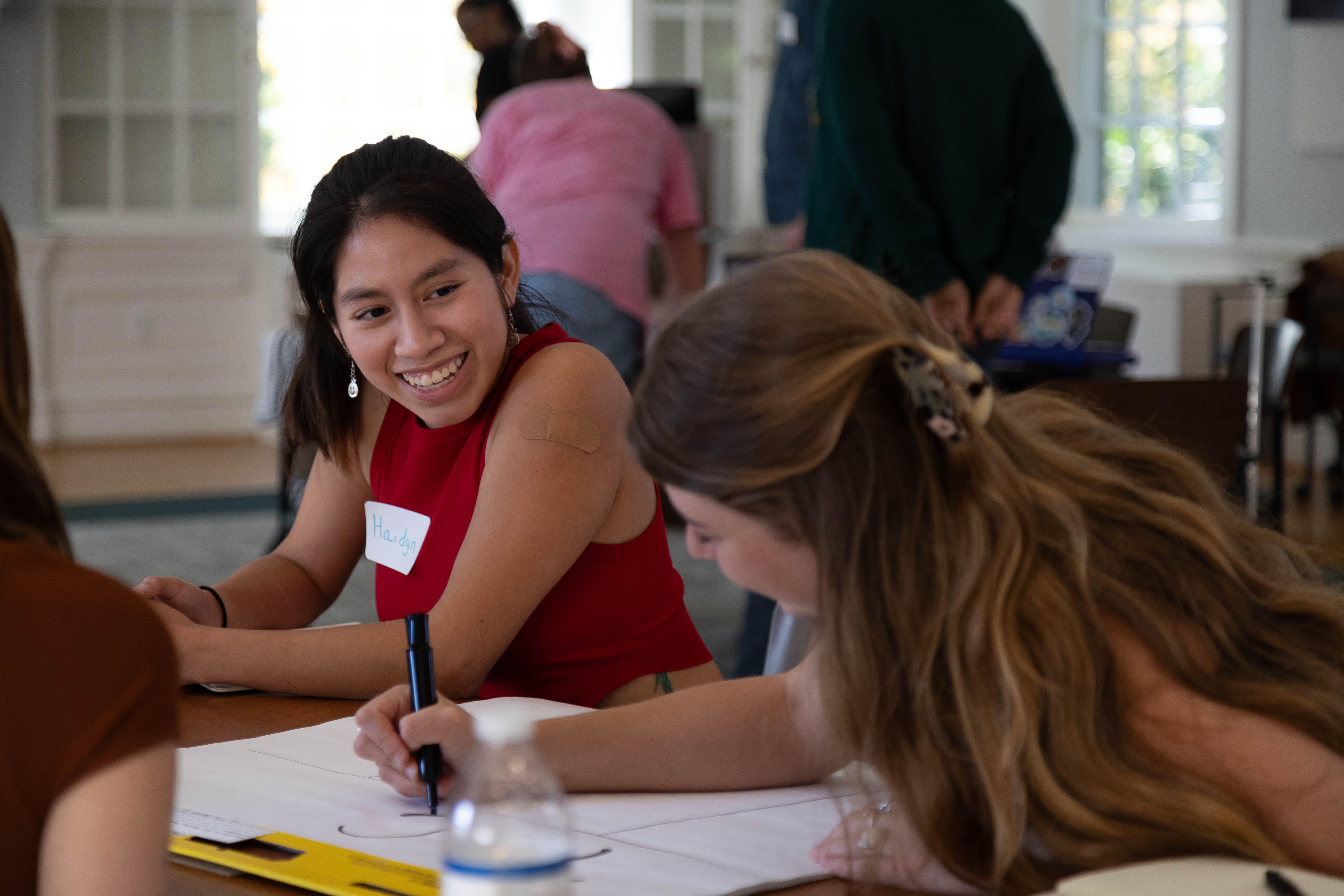 “I have one education reporter to cover seven cities, and they all have different needs. They all have different politics. They all have different issues,” Watson said. “So how do you choose?"
“I have one education reporter to cover seven cities, and they all have different needs. They all have different politics. They all have different issues,” Watson said. “So how do you choose?"
As journalists navigate these ethical concerns, they must steer clear of expressing any political allegiances to protect their journalistic integrity, while also never losing sight of their internal moral guide—their “sense of right and wrong,” she said.
“You cannot have the professional ethics without the personal ethics,” Watson said. It is the balancing act between the two that defines a reporter and how they capture the life of a story.
A reporter’s personal ethics also play a role in how they allow history to mold their narrative, Watson explained, as an ahistorical perspective compromises a reporter’s ability to ensure they “are being as ethical and as truthful as possible in giving people context.”
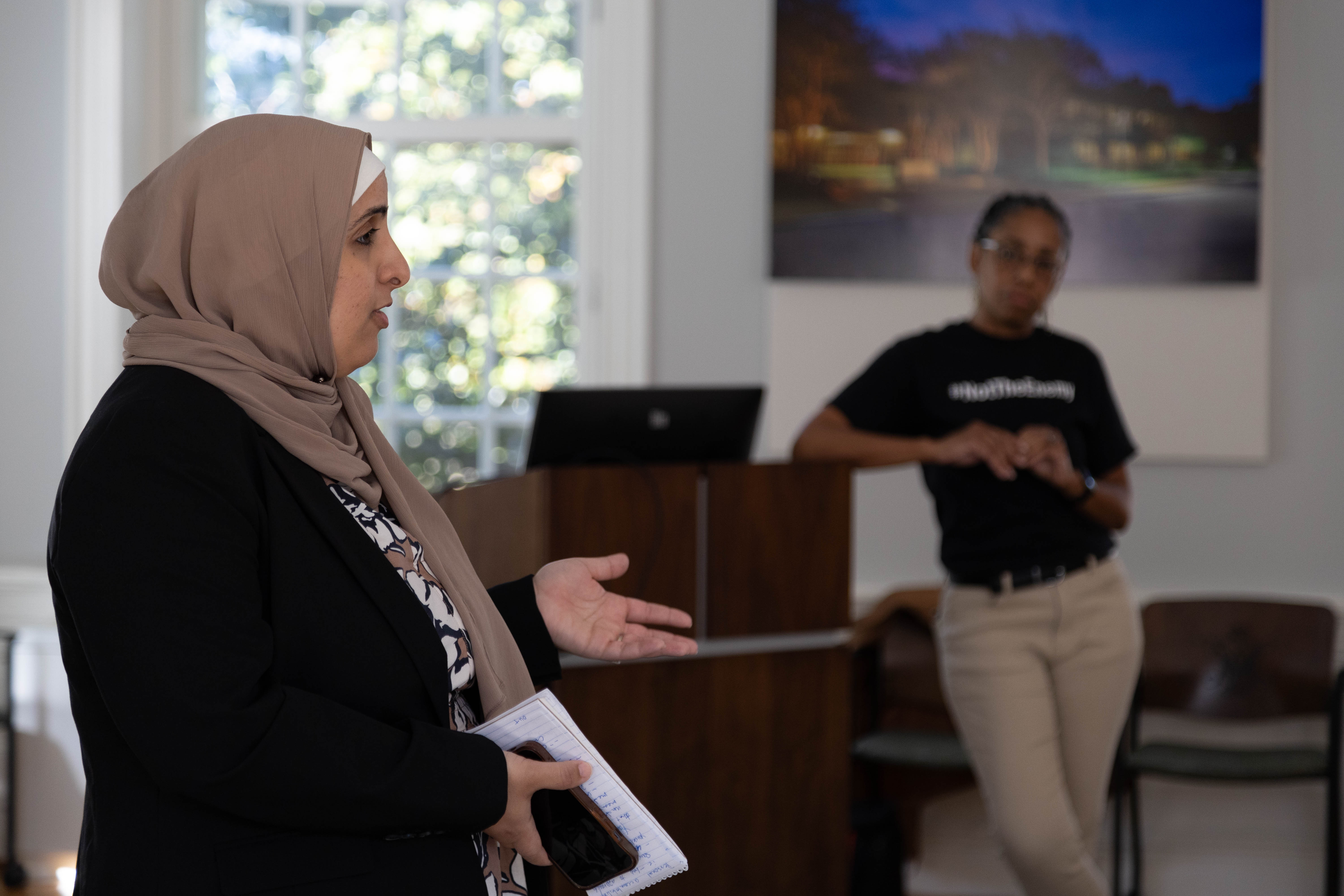 Nour Habib, who covers education for the Virginian-Pilot and Daily Press, joined Watson for the first half of the masterclass. Watson introduced Habib as one of the most conscientious and dedicated reporters with whom she has worked.
Nour Habib, who covers education for the Virginian-Pilot and Daily Press, joined Watson for the first half of the masterclass. Watson introduced Habib as one of the most conscientious and dedicated reporters with whom she has worked.
“The importance of the words that we choose,” and the perspectives that we choose to adopt, cannot be understated, Habib explained.
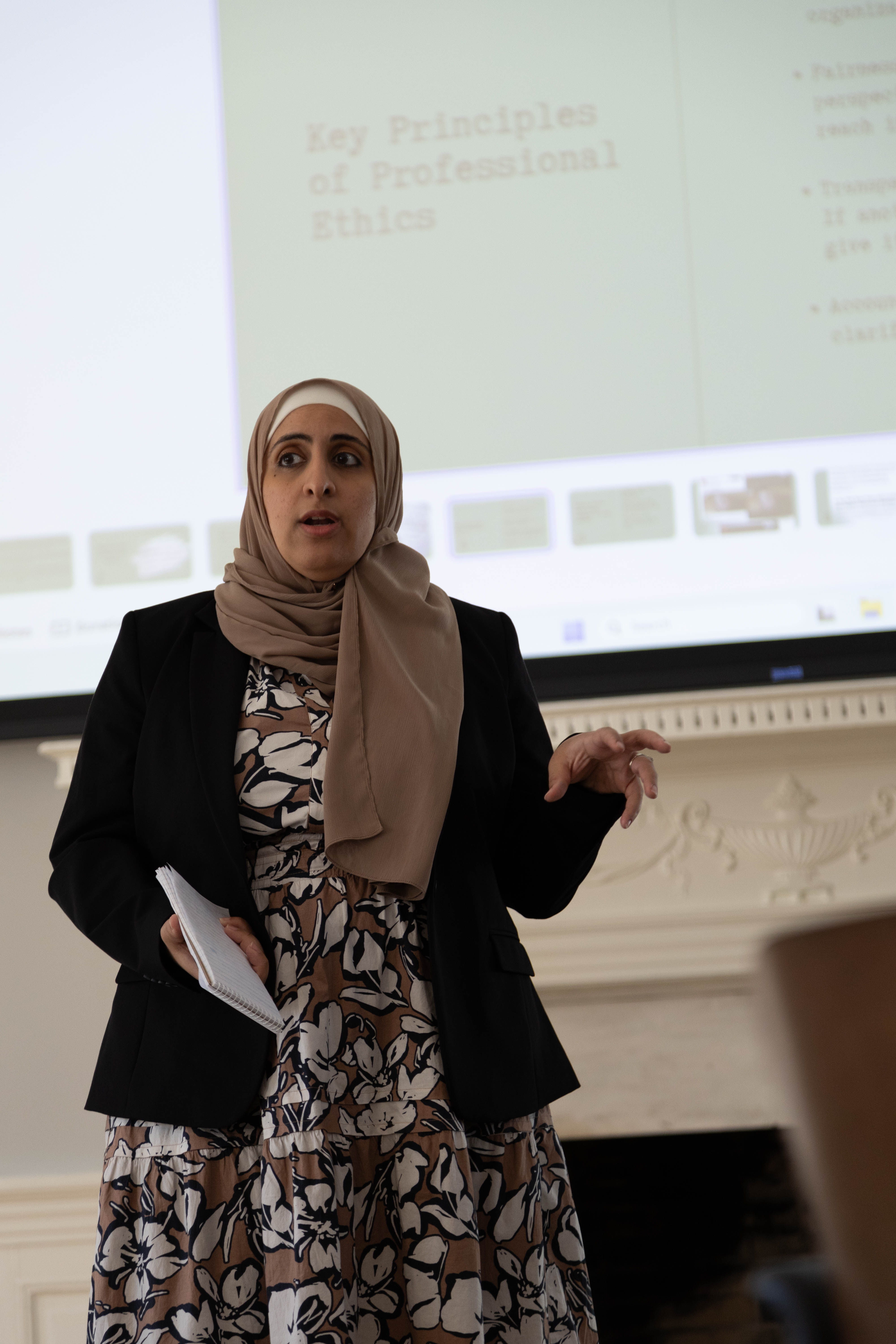 Habib joined Watson in highlighting the ethical factors that must be considered when designing headlines and promoting stories, especially in a technology-dependent age where people often get their news from the headline as they scroll past, and not the story.
Habib joined Watson in highlighting the ethical factors that must be considered when designing headlines and promoting stories, especially in a technology-dependent age where people often get their news from the headline as they scroll past, and not the story.
Using a recent example of the BBC headline, “Gaza man with down syndrome dies a lonely death,” which was later updated to “Gaza man with down syndrome attacked by IDF dog and left to die,” Habib demonstrated how headlines have the power to frame issues.
“It might seem minor,” she said, but “the context is important, and the nuance of those words is important.” Habib advocated for the use of a media guide at The Virginian-Pilot after October 7 to provide key historical context and promote the diversification of perspectives.
“Newsrooms are stronger because of diversity,” Habib said. “Everyone has their lived experience that they can bring to the table.”
Like other students in attendance, Noce looks forward to carrying these lessons with her to a graduate program in the field. She hopes to one day join Watson and Habib in the work of ethical journalism and honoring what Habib described as “the story of language.”


















